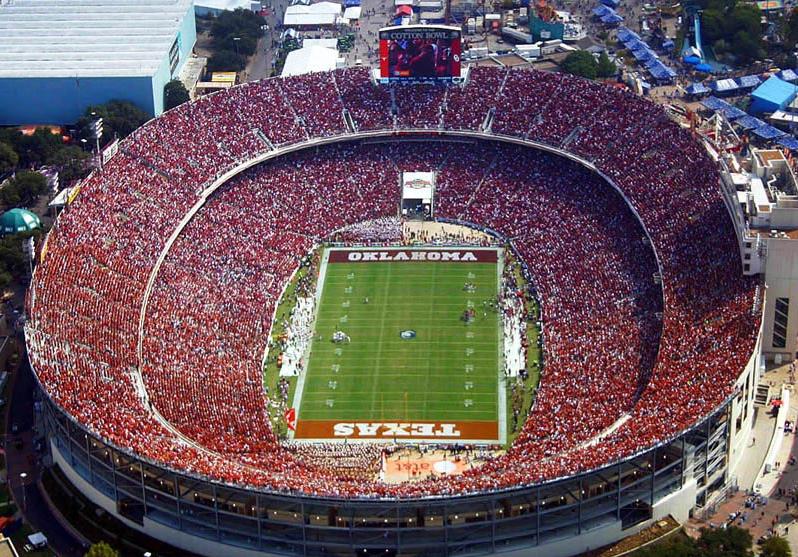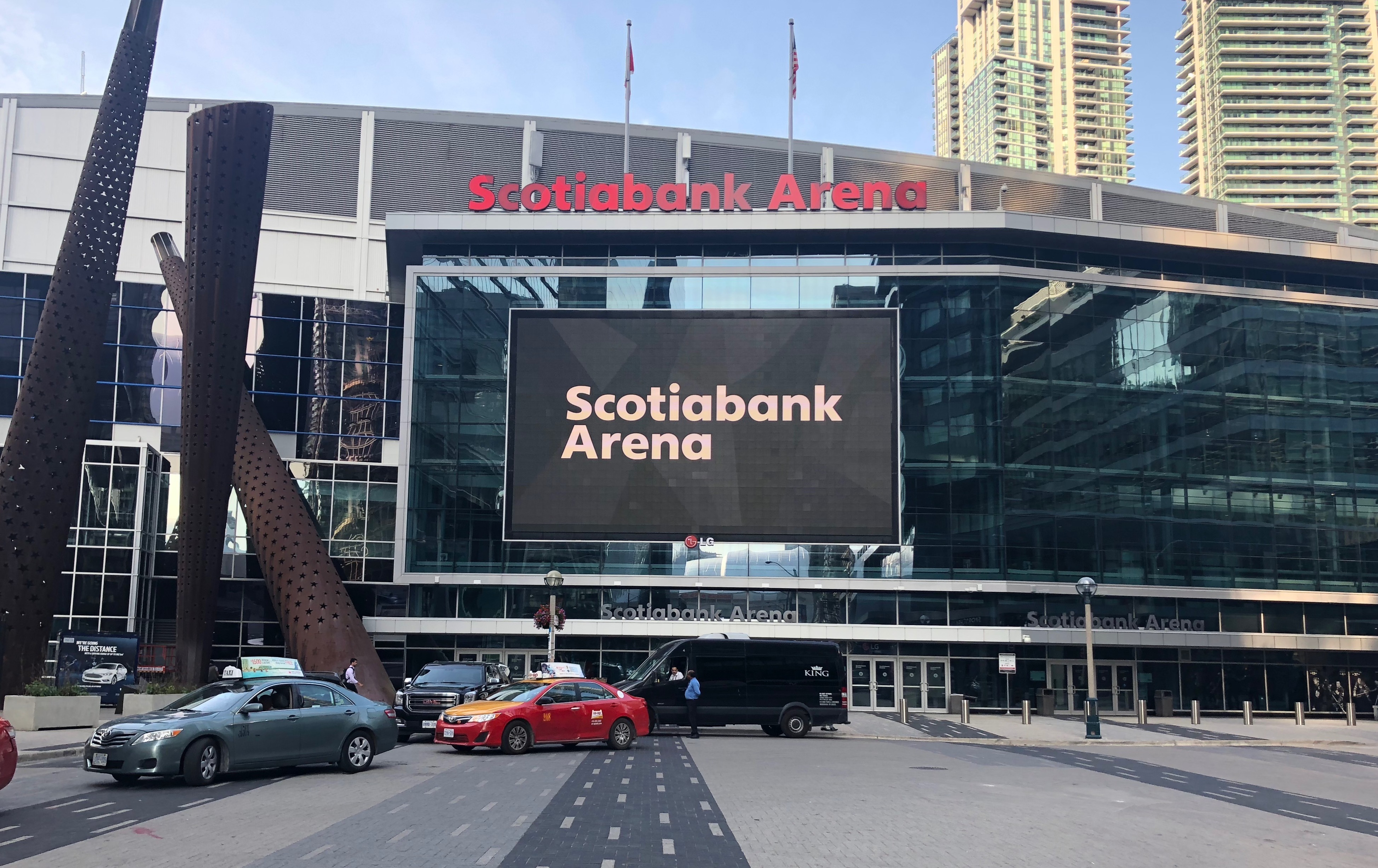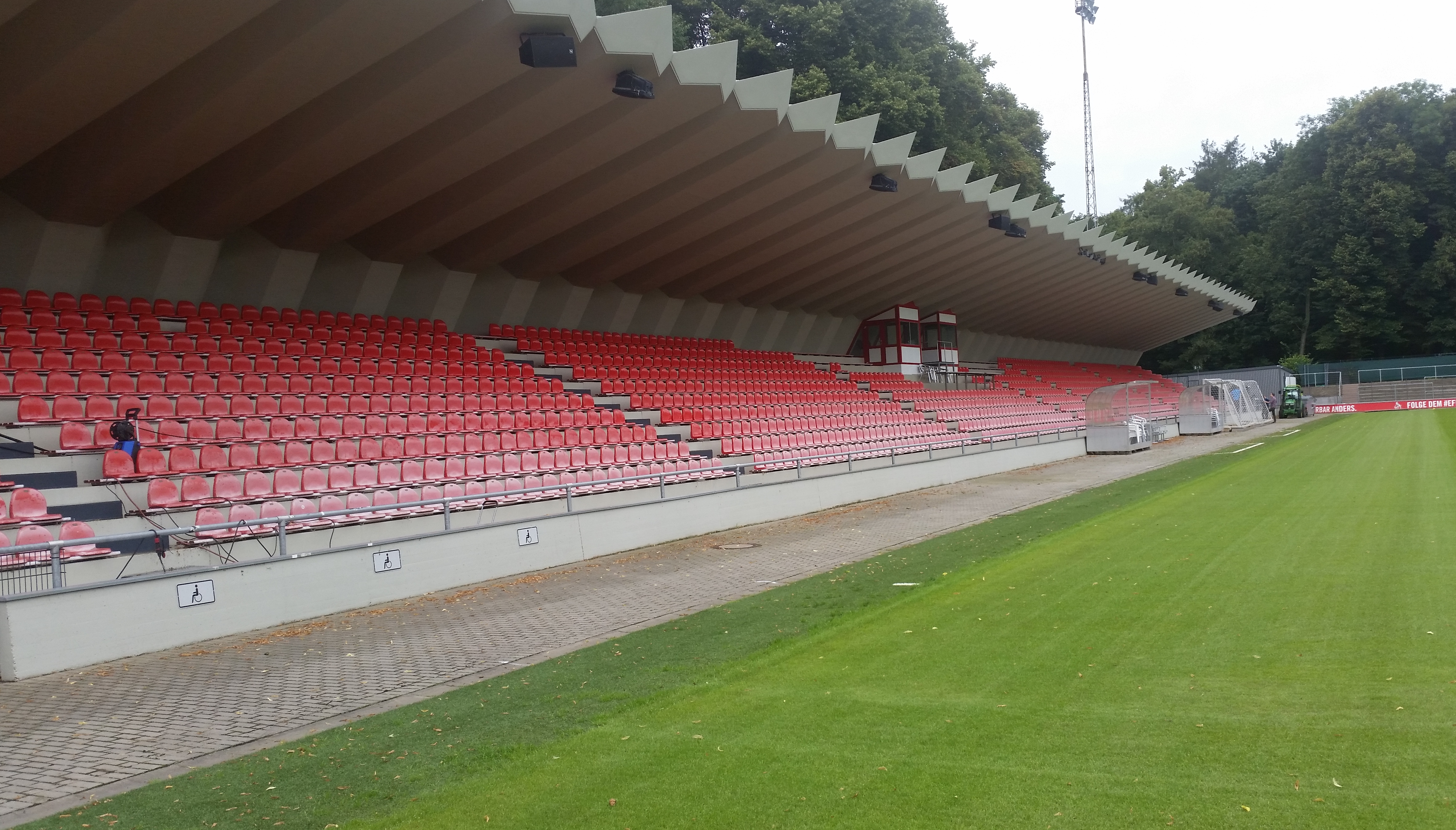
Cotton Bowl
- Dallas, USA
- 92.100 places
Deep in the heart of Dallas, Texas, stands the Cotton Bowl Stadium, a legendary venue that has been at the crossroads of American football, international soccer, and rock music history. Located in the historic Fair Park district and owned by the City of Dallas, this stadium has seen generations of athletes and fans pass through its gates since opening in 1932. With a current seating capacity of 92,100, it remains one of the largest stadiums in the United States without a permanent home team.
About this place
A Long Line of Tenants and Football Glory
Though it had no resident team in 2006, the Cotton Bowl’s past is filled with historic tenants. The stadium was once the home of the SMU Mustangs (NCAA), the Dallas Cowboys (NFL, 1960–1971), the Dallas Texans (NFL, 1952), the Dallas Texans (AFL, 1960–1962), the Dallas Tornado (NASL, 1967–1968), and Dallas Burn (MLS, 1996–2002, 2004–2005). Most notably, it was the long-time host of the prestigious Cotton Bowl Classic, an annual college football bowl game that ran at the stadium until 2009, before moving to the AT&T Stadium in Arlington.
World Cup, Music Legends, and Pop Culture Fame
The Cotton Bowl made its mark on the global stage during the 1994 FIFA World Cup, hosting multiple matches and showcasing its capacity to welcome the world. A decade later, it took center stage in the music world by hosting the first-ever Crossroads Guitar Festival, organized by Eric Clapton, turning the arena into a temple of blues and rock. The stadium even found its way into television pop culture — it was the setting for the dramatic season finale of the football drama Friday Night Lights.
The 2008 Renovation: Breathing New Life into a Classic
In September 2008, Dallas mayor Tom Leppert officially reopened the Cotton Bowl after a major $57 million renovation project. The transformation included 16,000 new seats, wrapping the second level into a full bowl, pushing capacity beyond 92,000. The facelift also brought in new VIP and media areas, an upgraded video board, revamped restrooms, expanded concessions, improved lighting, and a modern sound system. Most seating was converted to aluminum benches, while 1,500 chairback seats were added in premium upper-level sections.
A Stadium Without a Team — But Not Without a Soul
Today, the Cotton Bowl may not have a full-time tenant, but its legacy lives on through the memories of roaring crowds, legendary players, global spectacles, and iconic concerts. It is not just a football stadium — it is a cathedral of sport and culture, rooted deeply in the identity of Dallas and the wider world of American athletics.









